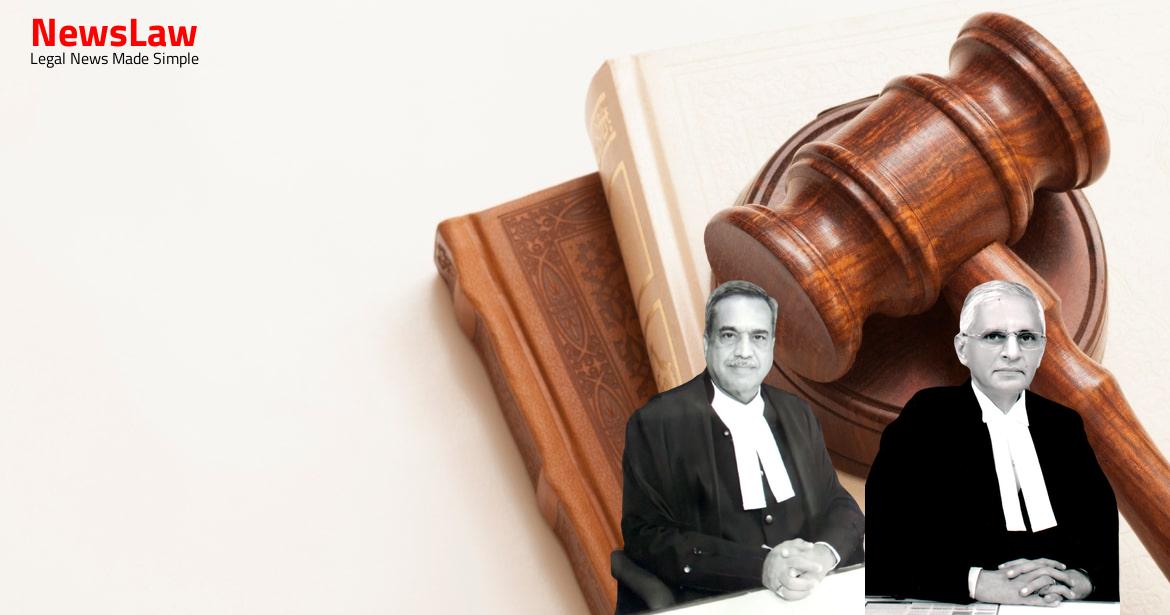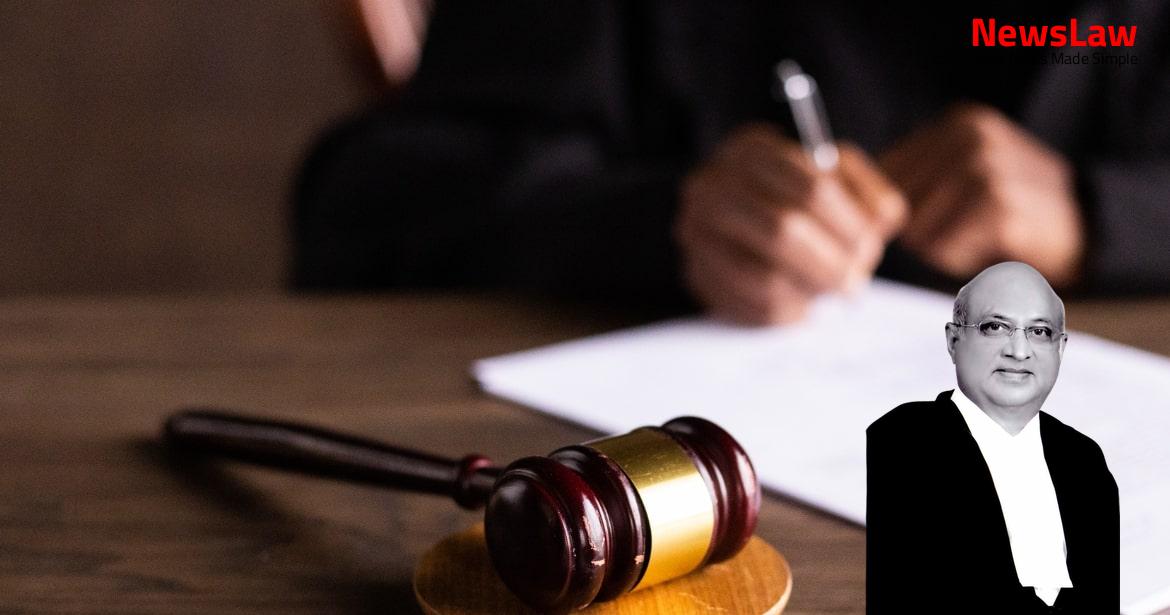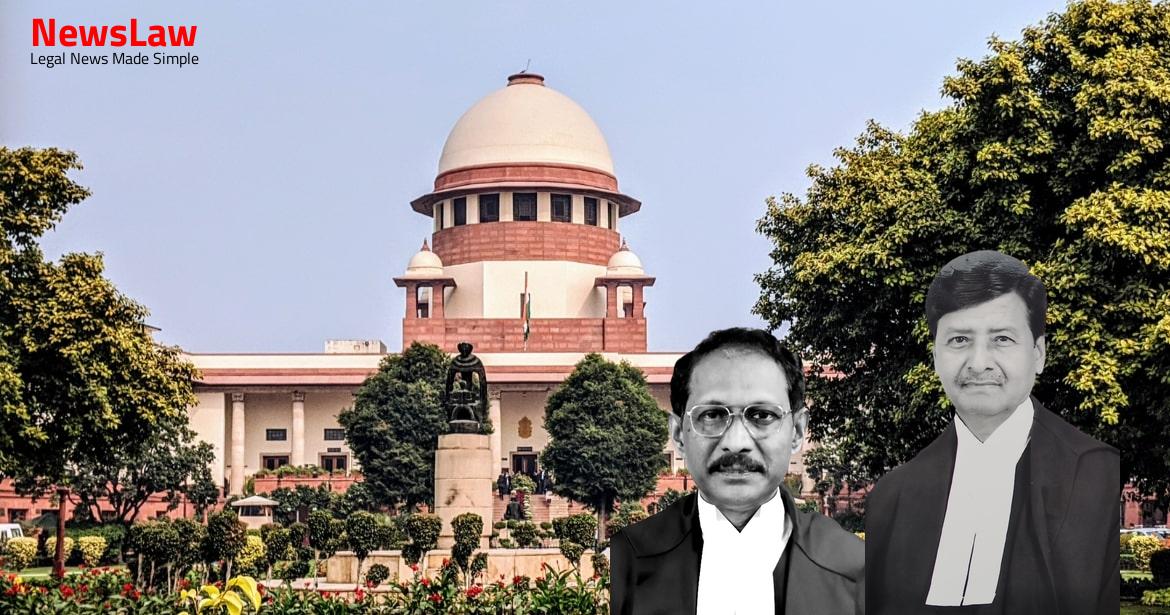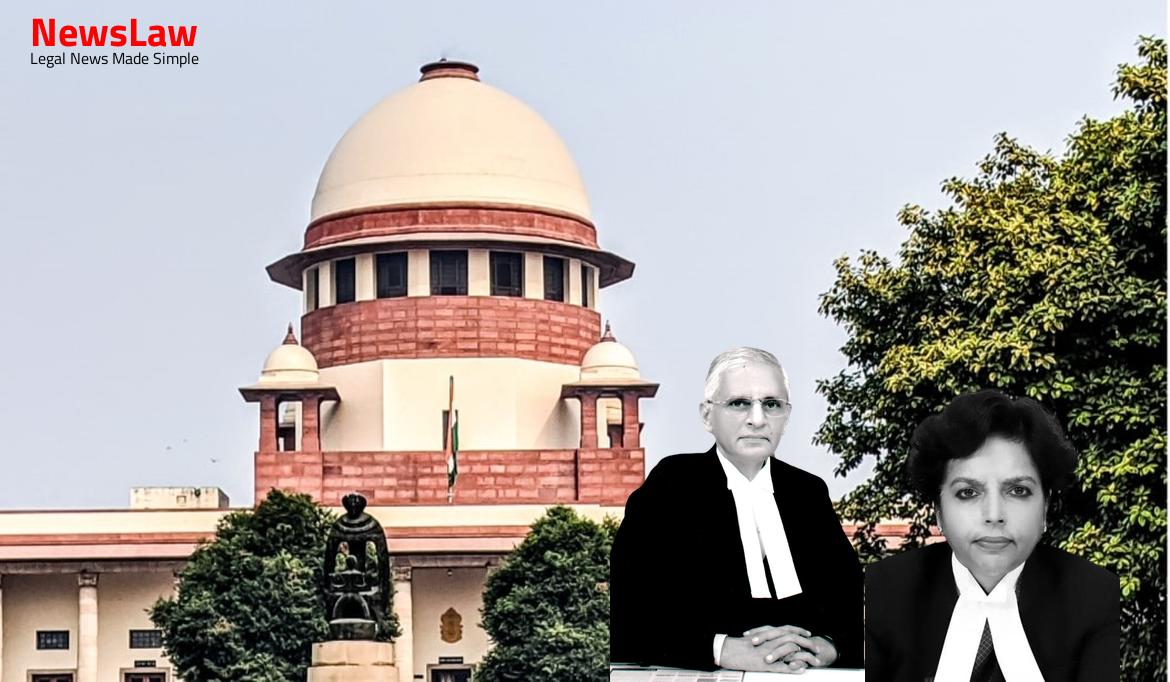Delve into the intricacies of the legal system with a focus on jurisdictional limitations of Lok Adalats. Discover the importance of adhering to the provisions of the Legal Services Authorities Act, 1987, when it comes to dismissing cases on their merits. Stay informed about the legal nuances governing dispute resolution mechanisms.
Facts
- The appellant filed a writ petition before the High Court, which was dismissed.
- Feeling aggrieved, the appellant appealed the decision.
- The High Court members in a Lok Adalat entered into the merits of the writ petition and dismissed it, leading to the present appeal.
- The appellant filed a restoration application claiming the Lok Adalat’s decision was beyond its jurisdiction and not legal.
- The matter was listed on 30.11.2013 before the Lok Adalat.
Also Read: Legal Analysis on Conviction Based on Sole Testimony of Prosecutrix
Issue
- Question posed for consideration: Whether in the Lok Adalat held by the High Court, it was permissible for the members to delve into the merits of the writ petition and dismiss it on the merits without any settlement between the parties.
- Relevant provisions of the Legal Services Authorities Act, 1987 discussed: Section 19 – Organization of Lok Adalats.
- Section 19(1) of the Act mentioned for reference regarding the jurisdiction of the Lok Adalat.
Also Read: Legal Analysis on Concurrent Sentences in Drug Trafficking Cases
Arguments
- Shri Vikramjit Banerjee, learned ASG representing the appellant argued that the impugned order was passed by the Lok Adalat in Madhya Pradesh High Court, which went beyond its jurisdiction by dismissing the case on merits instead of focusing on reaching a settlement.
- He referenced Section 19(5), Section 20(3), and Section 20(5) of the Legal Services Authorities Act, 1987 to support his contention that Lok Adalats are meant to facilitate compromises and settlements between parties, not to decide cases on their merits when a settlement is not reached.
- It was emphasized that the Lok Adalat’s order was without jurisdiction according to the provisions of the Act, 1987.
- The case of State of Punjab and Ors. Vs. Ganpat Raj (2006) 8 SCC 364 was cited as a precedent in support of the argument.
- Respondent’s counsel submitted that the matter was placed before Lok Adalat with the consent of the appellant’s counsel.
- Once the matter is before Lok Adalat with consent, the entire issue is considered by Lok Adalat.
- The petition was dismissed by Lok Adalat members for lack of substance.
- Given the above circumstances, the dismissal of the writ petition by Lok Adalat does not require interference by the Court under Article 136 of the Constitution.
Also Read: Legal Jurisdiction and Award Finality in Arbitration Dispute
Analysis
- Cases can be referred to Lok Adalats if the parties agree or if one party requests it and the court sees a chance of settlement.
- Lok Adalat can settle disputes pending in court or matters falling under its jurisdiction.
- Lok Adalat cannot handle cases related to non-compoundable offenses.
- If no settlement is reached in Lok Adalat, the case is returned to the court for further action.
- In cases where no settlement is reached, Lok Adalat advises parties to seek remedy in court.
- Lok Adalat is organized by various legal services committees and may consist of judicial officers and other specified persons.
- The organizing authority may refer matters to Lok Adalat for resolution after giving an opportunity to the other party.
- Courts are to continue proceedings from where they were before the Lok Adalat reference if the case is returned.
- The jurisdiction of the Lok Adalat is to determine and arrive at a compromise or settlement between the parties involved in a dispute.
- If no compromise or settlement can be reached, the Lok Adalat must return the case to the Court for disposal in accordance with the law.
- The Lok Adalat does not have the jurisdiction to decide the matter on merits if a compromise or settlement cannot be reached.
- According to sub-section (3) of Section 20, the Lok Adalat must proceed to dispose of the case and arrive at a compromise or settlement between the parties.
- It is important to note that the Lok Adalat’s role is focused on facilitating compromise and settlement rather than imposing decisions.
- A compromise is bilateral and involves mutual adjustment.
- Settlement refers to the termination of legal proceedings by mutual consent.
- The case in question did not involve compromise or settlement and could not have been resolved by the Lok Adalat.
- If no compromise or settlement is reached, the Lok Adalat cannot pass any orders.
- The order by the Lok Adalat dismissing the writ petition on merits is unsustainable and should be quashed and set aside.
- According to Bouvier, a compromise is an agreement between parties to settle their differences amicably to avoid a lawsuit.
- In the State of Punjab and Ors. Vs. Ganpat Raj case, it was held that compromise involves the adjustment of conflicting claims and mutual concessions.
- The Lok Adalat can dispose of a matter through a compromise or settlement between the parties as specified in Section 20 of the Act, 1987.
- Consent to place the matter before Lok Adalat is for settlement or compromise, not to decide on merits.
- If no compromise is reached, the matter must be returned to the court for decision on merits.
- Argument that Lok Adalat can decide on merits once matter is before it with consent is invalid.
Decision
- The impugned order passed by the Lok Adalat, Madhya Pradesh High Court dated 30.11.2013 in Writ Petition No.8074 of 2011 is quashed and set aside.
- Writ Petition No.8074 of 2011 is ordered to be restored to the file of the High Court for its decision on merits and in accordance with law.
- Pending applications, if any, also stand disposed of.
- The present appeal is allowed.
Case Title: ESTATE OFFICER Vs. COLONEL H.V. MANKOTIA (RETIRED) (2021 INSC 635)
Case Number: C.A. No.-006223-006223 / 2021



